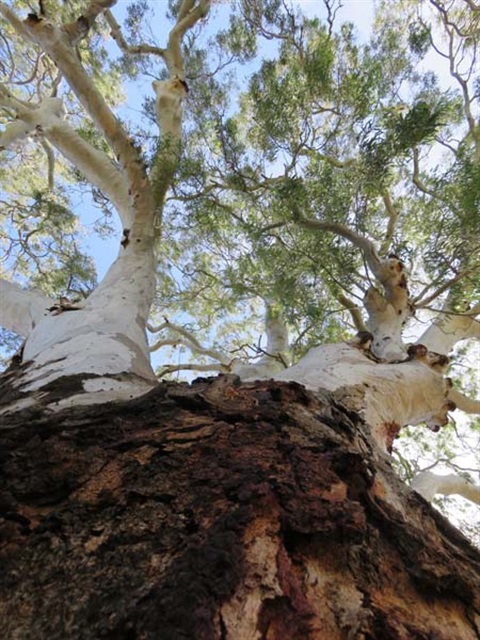Benefits of trees

Let’s face it, we could not exist as we do if there were no trees; they are vital to our existence.
As the biggest plants on the planet, trees give us oxygen, store carbon, stabilise the soil and give life to the world’s wildlife. They also provide us with the materials for tools and shelter. Not only are trees essential for life, but as the longest living species on earth, they give us a link between the past, present and future.
Trees are giant air conditioners with no power bills. They use solar energy to convert water into vapour, thereby cooling their surroundings. On a hot day the surface temperature of the urban forest can be similar to that of a nearby lake, while a dry patch of paddock or a bitumen road in the vicinity are more than 20°C hotter. The cooling power equivalent is around 70 kWh for every 100 litre of water transpired, similar to the output of two home air-conditioning units.
Trees benefit health
The canopies of trees act as a physical filter, trapping dust and absorbing pollutants from the air. Each individual tree removes up to 1.7 kilos every year. They also provide shade from solar radiation and reduce noise. Research shows that within minutes of being surrounded by trees and green space, your blood pressure drops, your heart rate slows and your stress levels come down.
Trees benefit the environment
Trees absorb carbon dioxide as they grow and the carbon that they store in their wood helps slow the rate of global warming. They reduce wind speeds and cool the air as they lose moisture and reflect heat upwards from their leaves. It’s estimated that trees can reduce the temperature in a city by up to 7°C. Trees also help prevent flooding and soil erosion, absorbing thousands of litres of storm water.
Trees control noise pollution
Trees muffle urban noise almost as effectively as stone walls. Trees, planted at strategic points in a neighbourhood or around your house, can abate major noises from freeways and airports.
Trees boost wildlife
Trees host complex microhabitats. When young, trees offer habitation and food to a numerous communities of birds, insects, lichen and fungi. As they age, tree trunks also provide the hollow cover needed by species such as bats, wood boring beetles, lorikeets and other many varied birdlife. One mature Eucalyptus can be home to many hundreds of different species. West Torrens has a limited number of such trees, which is one of the reasons it is so important to preserve what we have.
Trees strengthen communities
Trees strengthen the distinctive character of a place and encourage local pride. Our urban forest can be used as an educational resource and to bring groups together for activities like walking and bird-watching. Trees are also invaluable for children to play in and discover their sense of adventure.
Trees grow the economy
People are attracted to live, work and invest in green surroundings. Research shows that average house prices are 5 - 18 per cent higher when properties are close to mature trees. Companies benefit from a healthier, happier workforce if there are parks and trees nearby.
Trees protect the future
Soon, for the first time in history, the number of people with homes within West Torrens will outstrip the number of trees within our parks, reserves and streets. The parks, reserves and street trees will become an even more vital component of urban life. We must respect them and protect them for not only our benefits but also for future generations.